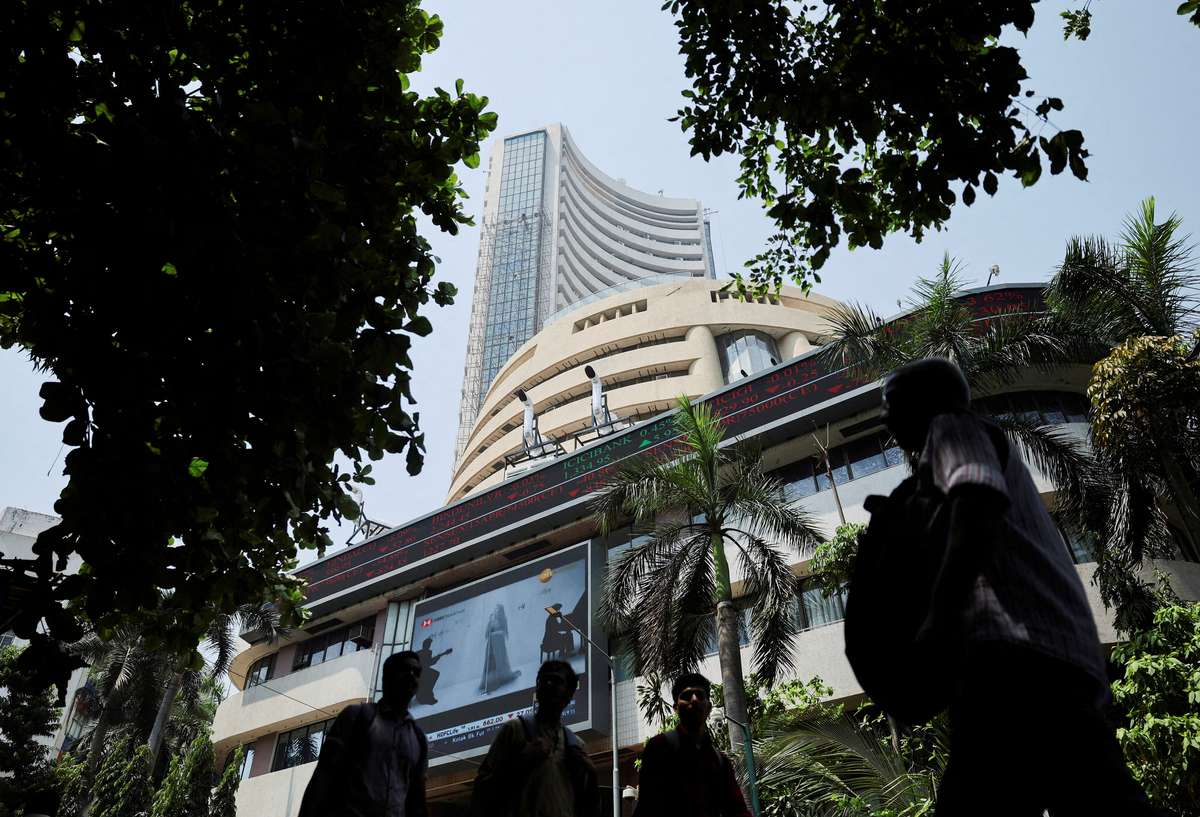Border conflict worry erases $83 billion from Indian equities in two days
Indian experts say market jitters stem from fears that Pakistani retaliation could trigger a prolonged conflict

Men walk past a screen displaying market results outside the Bombay Stock Exchange (BSE) in Mumbai, India, April 7, 2025.
Reuters
Indian shares fell for a second straight session on Friday, losing about $83 billion in market value, as intensified military action between India and its neighboring Pakistan rattled investors.
The nuclear-armed neighbors have been locked in conflict since Wednesday, when India targeted multiple "terrorist infrastructure" locations in Pakistan in response to a deadly attack in India Kashmir last month. Pakistan retaliated, and the countries have exchanged cross-border attacks since.
The Nifty 50 fell 1.1% on Friday but closed above the psychologically key 24,000-point mark, while the BSE Sensex also lost 1.1% but ended below the 80,000 level it held the previous day.
At its lowest, the market was set to lose $108 billion.
The indexes fell about 0.5% on Thursday and have lost about 1.3% this week, snapping a three-week winning run, their longest this year.
"With so much escalation, domestic markets are jittery because further retaliatory measures from Pakistan could lead to a prolonged, full-fledged conflict," said Avinash Gorakshaka, head of research at Profitmart Securities.
"Fundamentals will take a back seat while sentiment influenced by updates from the conflict could derail market momentum at least for a week if the fighting continues."
The volatility index, nicknamed the 'fear gauge', rose for an eighth straight session to hit a more-than-one-month high.
Other asset classes also suffered, with the central bank forced to step in to stem the rupee's slide.
The stock market hit was broad. Twelve of the 13 major sectors declined this week, while the small-caps and mid-caps lost 1.9% and 0.8%, respectively.
The one bright spot was auto stocks, lifted by Tata Motors' 8.7% jump on hopes that the UK-US trade deal would boost the fortunes of its British unit JLR.
It was the top among the 11 Nifty 50 members that gained this week.
Analysts said hopes of a U.S.-India trade deal and the country's economic resilience would keep traders interested in the market.







Comments
See what people are discussing